The Great Battle of Badr: A Key Event in Ramadan and a Turning Point in Islamic History
The Muslim victory in the decisive Battle of Badr marked the onset of a series of triumphs during the sacred month of Ramadan – a period synonymous with conquests, blessings, and empowerment. The spiritual ethos and noble sentiments inherent in Ramadan contribute to the enduring patience, unwavering resolve, and boundless courage of Muslims.
Reflecting on significant episodes in Muslim history associated with Ramadan, foremost among them is the Great Battle of Badr. Led by the Prophet Muhammad (peace be upon him), the Muslims emerged triumphant against the Quraysh forces, signifying a decisive moment against disbelief and falsehood.
Date and Location of the Battle of Badr:
The Battle of Badr unfolded on a Monday morning, the 17th of Ramadan, in the second year after the Hijrah (migration to Medina). The battlefield was situated in Badr, a strategic location serving as a waypoint for caravans traveling between the Levant and Mecca. Badr's geographical significance, nestled between Mecca and Medina, made it a renowned market town along the trade routes.
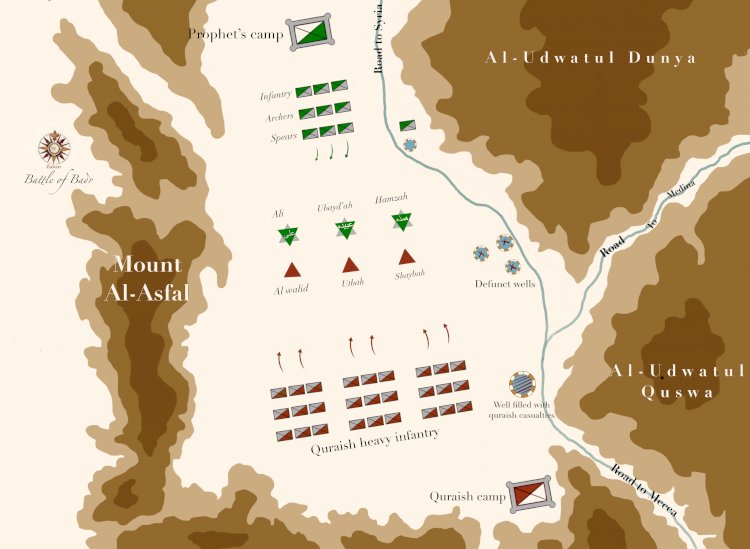
Reasons for the Battle of Badr:
Following the authorization for Jihad during the Medina period, Muslims learned of a significant Quraysh caravan returning from the Levant, laden with wealth under the leadership of Abu Sufyan and Suhayl ibn Amr. Responding to this, the Prophet (peace be upon him) mobilized his companions to intercept the caravan. However, the Muslims did not anticipate a direct confrontation with the Quraysh army; their primary aim was to seize the caravan. Consequently, they mobilized with reduced military strength.
About three hundred and thirteen Muslims, comprising approximately forty Ansar and two hundred Muhajirun, set out for Badr, accompanied by only two horsemen and seventy camels. Upon learning of the Muslims' intentions, Abu Sufyan diverted the caravan's route and alerted the people of Mecca, prompting Quraysh to prepare for battle. Their forces, numbering around one thousand fighters and two hundred horsemen, assembled to protect their economic interests and assert their dominance.
The Muslims reached Badr ahead of the Quraysh, strategically positioning themselves with the water source at their backs, as suggested by Hubab ibn al-Mundhir.
Events Preceding the Battle:
Disagreements arose among the Quraysh regarding whether to engage the Muslims in battle or return without confrontation. Ultimately, the faction advocating for battle, led by Abu Jahl, prevailed. Quraysh's objectives shifted from safeguarding the caravan to disciplining the Muslims and asserting their authority.
Upon learning of Quraysh's determination to fight, the Prophet (peace be upon him) consulted his companions, with figures like Abu Bakr and Umar ibn al-Khattab advocating for engagement. Sa'd ibn Mu'adh comprehended the Prophet's intent, expressing his agreement, which the Prophet confirmed.
Events of the Battle and the Beginning of the Conflict:
The Muslims reached Badr before the polytheists, and Hubab ibn al-Mundhir (may Allah be pleased with him) suggested to the Prophet (peace be upon him) to position themselves with the water source of Badr behind them. The Prophet (peace be upon him) accepted his advice and acted upon it. Among the Prophet's companions were men from Badr whose names were mentioned, and he said: "This is the place where so-and-so will meet his end tomorrow, God willing, and this is the place where so-and-so will meet his end tomorrow, God willing." On the morning of the battle, the Prophet (peace be upon him) arranged his army in battle formation while he remained in a tent (arish) - upon the advice of Sa'd ibn Mu'adh - overseeing the battle.
The Prophet (peace be upon him) engaged in abundant supplication to his Lord until his cloak fell off. Abu Bakr approached him and said: "O Messenger of Allah, your earnest supplication to your Lord is sufficient; He will fulfill His promise to you." Then Allah Almighty revealed: "When you asked help of your Lord, and He answered you, 'I will reinforce you with a thousand angels following one another.'" (Quran, Surah Al-Anfal: 9). The Prophet (peace be upon him) went out reciting: "The assembly will be defeated, and they will turn their backs [in retreat]." (Quran, Surah Al-Qamar: 45).
The Prophet (peace be upon him) then threw stones at the polytheists, as mentioned in the verse: "And you did not throw, when you threw, but it was Allah who threw" (Quran, Surah Al-Anfal: 17). Thus, Allah Almighty affirmed the beginning of the throwing by His Messenger (peace be upon him) and negated any implication that the throwing done by the Prophet (peace be upon him) missed its target.
The battle commenced with Utbah ibn Rabi'ah advancing, followed by his son, Al-Walid, and his brother, Shaybah, seeking single combat. Young men from the Ansar responded to their challenge. But Quraysh leaders refused to fight them individually and instead demanded combat with their kinsmen. The Prophet (peace be upon him) then ordered Ali ibn Abi Talib, Hamzah ibn Abdul Muttalib, and Ubaydah ibn al-Harith (may Allah be pleased with them) to engage. Hamzah killed Utbah, Ali killed Shaybah, and Ubaydah (R) severely wounded Al-Walid. After killing their opponents, Ali and Hamzah then attacked Al-Walid and killed him, carrying away Ubaydah (ra).
Quraysh was affected by the outcome of the single combat and initiated their attack. The Prophet (peace be upon him) ordered his companions to throw pebbles at the polytheists when they approached the Muslims.
Then the two armies clashed in a great battle, and Allah Almighty supported the Muslims with angels on the day of the battle, as mentioned in the verse: "When you asked help of your Lord, and He answered you, 'I will reinforce you with a thousand angels following one another * And Allah made it not except as [a sign of] good tidings for you and to reassure your hearts thereby. And victory is not except from Allah, the Exalted in Might, the Wise.'" (Quran, Surah Al-Anfal: 9-10).
After the confrontation, seventy polytheists were killed, including those whose locations had been mentioned by the Prophet (peace be upon him) before the battle. None of them deviated from the position designated by the Messenger of Allah (peace be upon him). Among the slain were several leaders of Quraysh, including Abu Jahl - Amr ibn Hisham, who were killed by Mu'adh ibn Amr ibn al-Jamuh and Ma'di Karib, two youths. Bilal ibn Rabah with the assistance of a group of Ansar and others killed Umayyat bin Khalaf. The Prophet (peace be upon him) ordered the bodies of the slain polytheists to be dragged to the wells of Badr and thrown into them.
The number of Quraysh prisoners was seventy men, while the remaining polytheists fled without achieving any success, leaving behind much plunder on the battlefield. The Prophet (peace be upon him) buried the martyrs of the Muslims, who numbered fourteen.
Results of the Battle of Badr:
The Muslims' position became stronger, and they became feared among all the tribes of the Arabian Peninsula. The status of the Prophet (peace be upon him) in Medina was elevated, and the stature of Islam rose therein. The polytheists in Medina did not dare to openly display their disbelief and hostility towards Islam. Consequently, hypocrisy, deceit, and treachery emerged as they declared their Islam openly before the Prophet (peace be upon him) and his companions while keeping hostility in secret.
The Muslims' confidence in Allah Almighty and His noble Messenger (peace be upon him) increased. A significant number of Quraysh polytheists embraced Islam, which helped boost the morale of the Muslims who were still in Mecca. Their spirits rejoiced in Allah's victory, and their hearts were assured that the day of triumph was near, thus strengthening their faith and steadfastness in their beliefs.
The Muslims gained military expertise and developed new warfare strategies, gaining widespread fame within the Arabian Peninsula and beyond. As for Quraysh, their loss was severe. The deaths of Abu Jahl ibn Hisham, Umayyah ibn Khalaf, Utbah ibn Rabi'ah, and other leaders of disbelief, who were among the bravest and most powerful of the Quraysh, marked not only a military defeat but also a moral one. This was because Mecca was no longer just threatened in its trade but also in its sovereignty and influence throughout the entire Hijaz.
Thus, despite its small scale, the Battle of Badr was a decisive turning point in Islamic history. Hence, Allah Almighty named it the Day of Criterion, stating: " Know that whatever spoils you take, one-fifth is for Allah and the Messenger, his close relatives, orphans, the poor, and ˹needy˺ travellers, if you ˹truly˺ believe in Allah and what We revealed to Our servant on that decisive day when the two armies met, And Allah is Most Capable of everything.'" (Quran, Surah Al-Anfal 41).
References:
At-Tabari, "Tarikh al-Rusul wal-Muluk" (The History of the Prophets and Kings), Beirut, Dar al-Kotob al-Ilmiyah, 1st ed., 1407 AH, Vol. 2, p. 404.
Ali Muhammad Muhammad Al-Salabi, "Al-Seerah Al-Nabawiyyah - Ard wa Qa'iah wa Tahleel Ahadith" (The Prophetic Biography - Presentation, Events, and Analysis of Narrations), Beirut, Dar Al-Ma'arif, 7th ed., 1429 AH/2008 CE, pp. 553-590.
Muhammad Al-Abid, "Hadith Al-Quran 'an Ghazwat Al-Rasul SAW" (The Quranic Narration of the Prophet's Campaigns), Dar Al-Gharb Al-Islami, Tunis, 1st ed., 1994, Vol. 1, pp. 91-99.
Mahmoud Sheet Khattab, "Ghazwat Badr Al-Kubra Al-Hasima" (The Decisive Battle of Badr), Dar Qutaybah Printing, 1392 AH, 1972 CE, pp. 23-24.
Sahih Muslim, Book of Jihad and Expedition, Chapter: The Sending of Angels in the Battle of Badr and Permission to Take Booty, Vol. 3, p. 1384.
Mahdi Rizqullah Ahmad, "Al-Seerah Al-Nabawiyyah 'ala Daw' Al-Masadir Al-Asliyah - Dirasah Tahleeliyah" (The Prophetic Biography in Light of Original Sources - Analytical Study), Riyadh, King Faisal Center for Research and Islamic Studies, 1st ed., 1412 AH/1992 CE.
Ya'qubi Al-Hamawi, "Mu'jam Al-Buldan" (Dictionary of Countries), Dar Sader, Beirut, 2nd ed., 1995, Vol. 1, p. 357.
About the author:
Ali Muhammad al-Sallabi, born in 1963 in Benghazi, Libya, is a renowned Muslim historian, religious scholar, and Islamist politician who has written many books. This article is a translation of his article in Arabic on Al Jazeera blogs.
Disclaimer
The views expressed in this article are the author’s own and do not necessarily mirror Islamonweb’s editorial stance.
3 Comments
-

The Battle of Badr stands as a testament to unwavering faith and remarkable courage. Though vastly outnumbered, the early Muslim community, guided by the Prophet Muhammad (PBUH) , faced a formidable Meccan force with resolute conviction. Their victory, against all odds, was a pivotal moment, not only solidifying the nascent Muslim community but also serving as an enduring symbol of divine support and the triumph of belief over material strength. It remains a source of inspiration, reminding us that with sincere dedication and reliance on a higher power, even seemingly insurmountable challenges can be overcome.
-
-

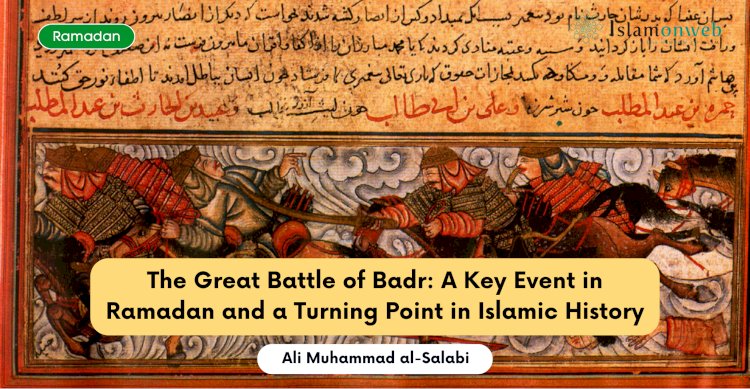


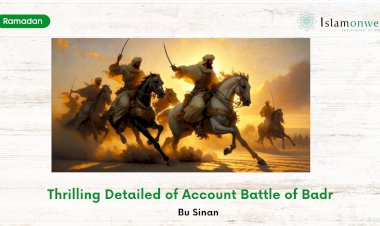
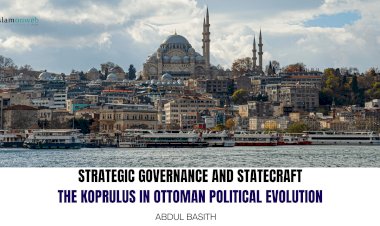
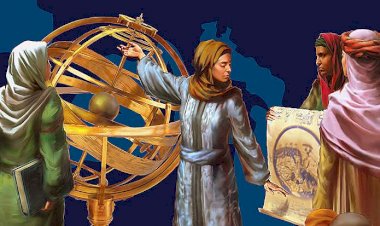
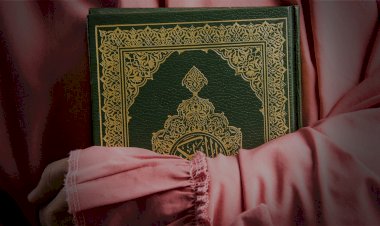
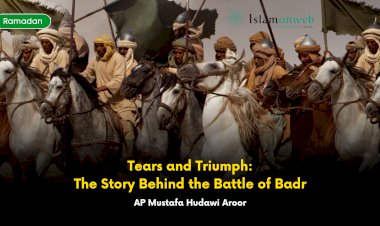
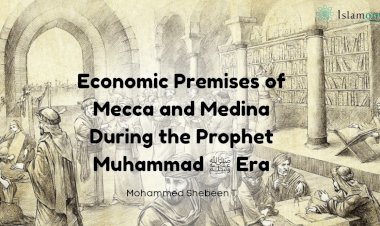














Leave A Comment